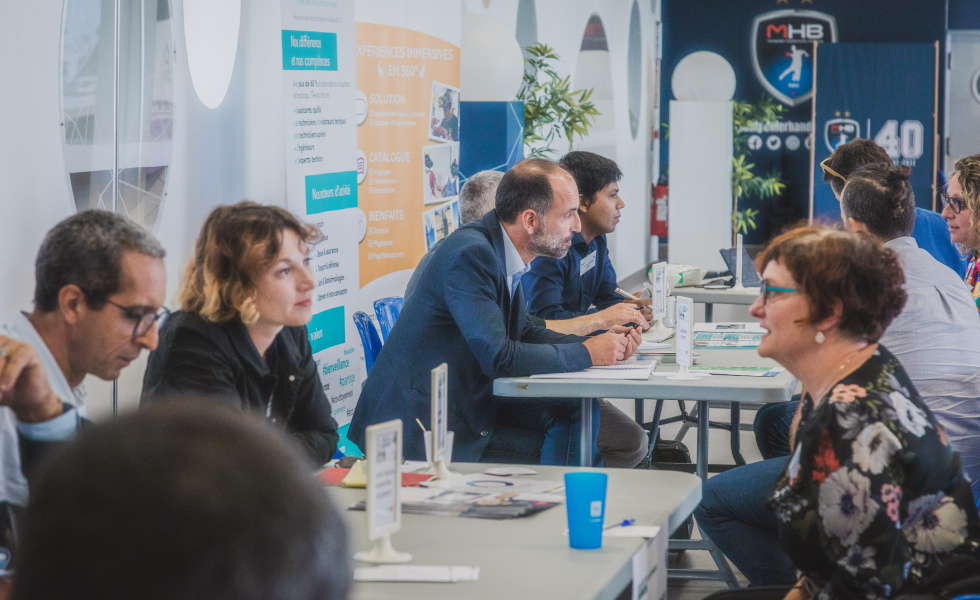Public procurement is a powerful catalyst for transformation towards a more local, sustainable, and inclusive economy. With this in mind, as part of its
Socially and Environmentally Responsible Procurement Week, Montpellier Métropole and the
Occitanie Regional Chamber for the Social and Solidarity Economy (CRESS) organized a networking event to bring together socially and environmentally responsible suppliers and public-sector buyers. Held at Montpellier’s FDI Stadium on May 25, the event focused on
digital responsibility, a theme that is central to the Group’s activities.
“Digital technology is everywhere. While regions must attract businesses and meet their residents’ needs, digital technology also represents an environmental challenge, contributing 4% of greenhouse gas emissions. This is therefore a priority issue for Montpellier Métropole,” pointed out Caroline Dufoix, Montpellier city council member in charge of the Social and Solidarity Economy and the Reduction of Substandard Housing, during her speech.
Committed to promoting
digital access for all and the
development of digital citizenship, Montpellier Métropole has placed sustainable development at the heart of its procurement policy.
In 2022, local authorities launched a program to promote socially and economically responsible public procurement (SPASER), which defines two objectives: 30% of all contracts awarded during the year must integrate social considerations, and 100% of all contracts will integrate environmental considerations by 2025. Caroline Dufoix also added that a Responsible Digital department had been established.
Responsible digital technology is no longer simply an option. This is illustrated by
RES’OCC, Occitanie’s regional network for responsible procurement, designed to support and unite public-sector stakeholders, while also encouraging people to share their experience. Blandine Menard, in charge of the “RES’OCC – Guichet Vert” public procurement project, emphasized during the networking event:
“Public procurement must be exemplary.”
In this context, companies must also work towards becoming sustainable.
Digital 113, the association of digital companies in the Occitanie region (300 members), also set up a
Responsible and Sustainable Digital Factory, whose key missions include helping companies and IT departments measure their environmental impact in order to better reduce them. The Factory was presented at the networking event.
“Digital activities generate 2.5% of France’s overall carbon footprint and consume 10% of the country’s electricity,” added Ronnie Garcia, the Factory’s director and also CEO of
OVEA, an Internet service provider that is committed to both people and the ecology. The Factory set up by Digital 113 is thus a valuable source for advice, providing a list of best practices to be implemented, such as adapting procurement to needs, favoring resource-efficient and eco-designed hardware and software, and eliminating unused services. Digital responsibility is a real asset for social and solidarity sector suppliers.
Also worth knowing
On May 26, Michaël Delafosse, Mayor of Montpellier and President of Montpellier Métropole announced that a “citizens’ agreement for sovereign, responsible, and ethical artificial intelligence” would be established in the fall of 2023.

